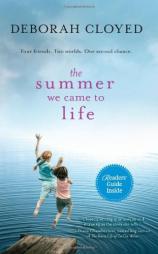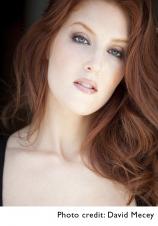Reading Group Guide
Discussion Questions
The Summer We Came to Life

1. The book opens by saying birth and death are uncontrollable. Does the book disprove this by the end? How literally did you take this notion? To what extent can we control our existence and shape our reality using our consciousness?
2. Do you think Samantha made the right decision about Remy and about her life path? How is her decision representative of the state of the modern woman? Women have more choices than ever in terms of their career and relationship roles. Do you think that is something exhilarating and liberating, as Jesse and Lynette might say, or do you think it’s bound to be overwhelming, as Samantha feels it is for much of the book?
3. What did you make of Ahari? Is he a shaman? A protector? A spiritual being? Do you believe that there are people amongst us that can tap into a supernatural realm?
4. At one point, Samantha feels a sense of contentment about her unlikely family. How does the book define family? What family have you been a part of that wasn’t related by blood, but no less important? If to raise a child means to nurture them, feed them, guide them and educate them --- who “raised” you?
5. The vacationers have a tense discussion about the Garifuna as they drive through the villages. Which side did you find yourself taking? How else is the issue of race addressed in the novel? How would racial relations have changed or not changed in the time from Lynette’s childhood to her daughter’s childhood?
6. Kendra faces a heartbreaking decision when she discovers her pregnancy. What did you think of the way she made her ultimate decision? Do you agree with Kendra’s assertion that ultimately we make decisions all alone or with Samantha’s conclusion that the opposite is true --- that our decisions are tied to the important people in our lives?
7. The book casts several major historical events --- the Iran Revolution, U.S. Civil Rights, and political upheaval in Panama --- through the lens of personal experience. We all experience history this way. What is the book’s message about history? What, if any, is the difference between your elders’ experience of historical events --- Civil Rights, for example --- and the experience of those younger than you of events in their lifetime, such as 9/11?
8. Religion is touched on only lightly in this book. What do you make of Samantha’s metaphysical journey with Mina? Is there a way to make it fit with classical notions of religion? Did that bother you in any way? Or do think there is a way to combine science and religion?
9. In Joseph Campbell’s notion of the monomyth (also known as the hero’s journey), the hero travels from his or her everyday world into an extraordinary realm, then must fight to return after having gained powers that he or she can then impart on others. In what ways does this apply to Samantha’s journey?
10. The physics that Samantha references in the novel --- the Copenhagen Theory, the Many Worlds Theory, etc. --- are actual, well-known principles of quantum physics. Would you have been happy without any kind of scientific explanation about Samantha and Mina’s reunion world? To what extent do you believe parallel universes and the power of consciousness can explain the mysteries of our world?
The Summer We Came to Life
- Publication Date: May 31, 2011
- Paperback: 320 pages
- Publisher: Mira
- ISBN-10: 0778312917
- ISBN-13: 9780778312918








